I have a web application that uses ASP.NET with "InProc" session handling. Normally, everything works fine, but a few hundred requests each day take significantly longer to run than normal. In the IIS logs, I can see that these pages (which usually require 2-5 seconds to run) are running for 20+ seconds.
I enabled Failed Request Tracing in Verbose mode, and found that the delay is happening in the AspNetSessionData section. In the example shown below, there was a 39-second gap between AspNetSessionDataBegin and AspNetSessionDataEnd.
I'm not sure what to do next. I can't find any reason for this delay, and I can't find any more logging features that could be enabled to tell me what's happening here. Does anyone know why this is happening, or have any suggestions for additional steps I can take to find the problem?
My app usually stores 1-5MB in session for each user, mostly cached data for searches. The server has plenty of available memory, and only runs about 50 users.
